Promises of hope during coronavirus pandemic as people who fell seriously ill begin recovery
Titou Phommachanh and Taylor Young are beginning their recovery.
Amanda Phommachanh was able to embrace her husband, Titou Phommachanh, on Thursday for the first time since he was admitted to a Virginia hospital over three weeks ago for the novel coronavirus, COVID-19.
“It was the most joy I’ve ever felt. It really was. It felt like everything was whole finally again,” she told “Nightline.” Her husband joked it “felt like busting out of jail.”
COVID-19 ravaged Titou’s health, putting him in intensive care while he was unable to breathe for himself.
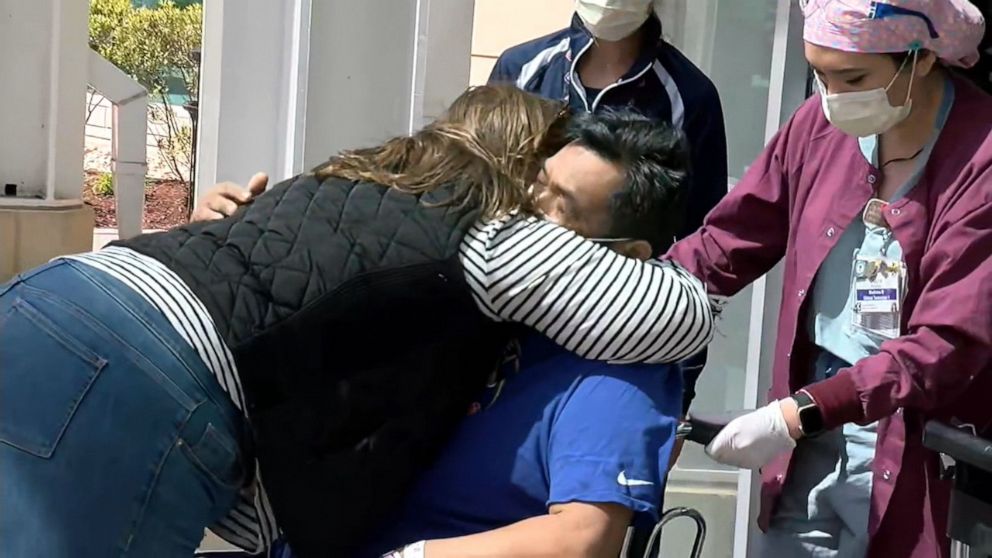
When he returned home to his three daughters, the first thing Titou told them was that he “loved them; that daddy was fighting to come back to them,” he said tearfully.
“That’s all I wanted when I was in the hospital was to get out… So every day was, for me, it was like a fight to get out so I can get home,” Titou said.
Confirmed cases of the novel coronavirus continue to surge across the country, with the Centers for Disease Control and Prevention reporting 239,279 cases of the infection as of Friday afternoon.
“What we were hearing early on is that this disease mostly affected people over the age of 60. But now, as time goes on in this country, we are starting to see more and more young people get sick and, in some cases, severely sick,” Dr. Darien Sutton, an ABC News contributor, told “Nightline.” “Although it is still disproportionately affecting older people, when we hear these cases of young people getting sick, we are still surprised.”
For some young people, the outcome of the infection can be heartbreaking.
This week, 30-year-old Ben Luderer, a teacher and varsity baseball coach in New Jersey, died from the disease. Conrad Buchanan, a 39-year-old from Florida, also died.
“My people... I implore all of you to be vigilante [sic] with your health in these trying days. We all can be affected,” Buchanan wrote on his Facebook shortly before his death. “This past week has been extremely hard.”
Titou represents the hope that even those with the most severe forms of the infection can survive.
“It's a day that I thought that wouldn’t ever happen,” Titou said. “The last thing I can remember is when we came back from New York [on March 1]… The whole month of March has been sort of erased from my mind as far as a timeline. I can remember bits and pieces of things that’ve happened, you know, in between there. Some good, some bad.”
He said he started feeling sick while working as the director of catering at the Hilton in Washington D.C. on March 4. His health took a serious turn for the worse just a few days later.
Then, less than 24 hours after he was brought into the hospital, he was put on a ventilator. Titou’s test results eventually confirmed what everyone had already suspected: he had COVID-19.
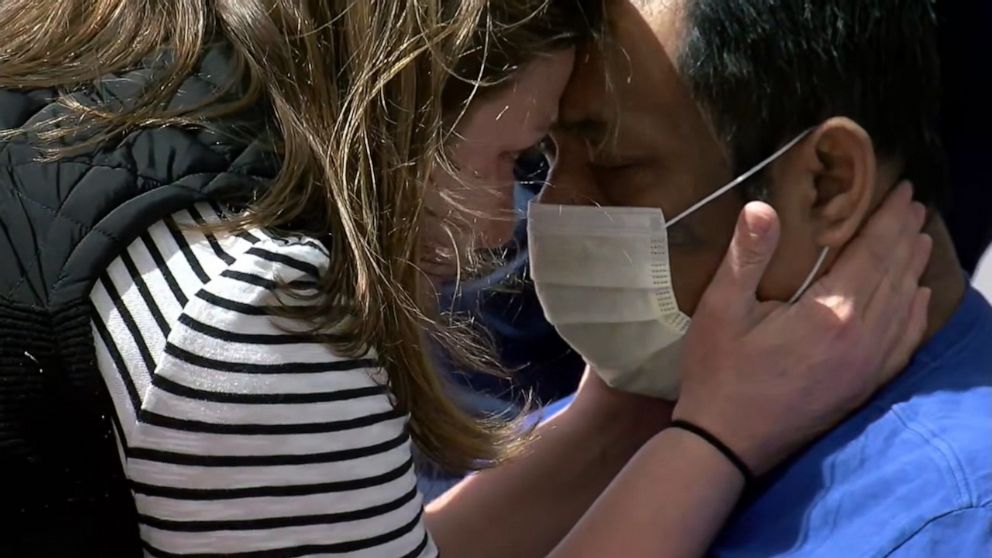
Amanda said that while Titou was in the hospital, his health care workers “got to know” her.
“They knew my number on the phone when I called,” she said. “They’d put the phone on speakerphone and put it by his head so we could talk to him and tell him good night, every night. Whether he could hear us not, I don’t know.”
Titou said he couldn’t remember the calls.
Although his condition improved slightly while on the ventilator, it took a dive when doctors gave him the experimental Ebola drug remdesivir.
Titou was put on an “ECMO” machine, which helps to oxygenate the blood, lightening the load on patients’ hearts and lungs.
“We didn't think he was coming home. There were days -- probably a few days -- we were pretty sure he wasn’t going to make it,” Amanda remembered. “The ECMO director told me yesterday that he was kind of hanging onto life for about two weeks.”
As Amanda waited at home for good news, their eldest daughter also tested positive for the virus. She developed a fever but is doing fine now.
Titou says his family was the driving force that kept him from giving up.
“I said I just wanted to be home with my girls,” he said. “The whole thing is scary because you wake up to yourself… You didn't have a familiar face, a familiar name, it’s just you. So that was the scariest part for me.”
Meanwhile, over 2,000 miles away on the west coast, Darryl Ramos-Young had been anxiously awaiting a call from the hospital for news about his 26-year-old son, Taylor Young.
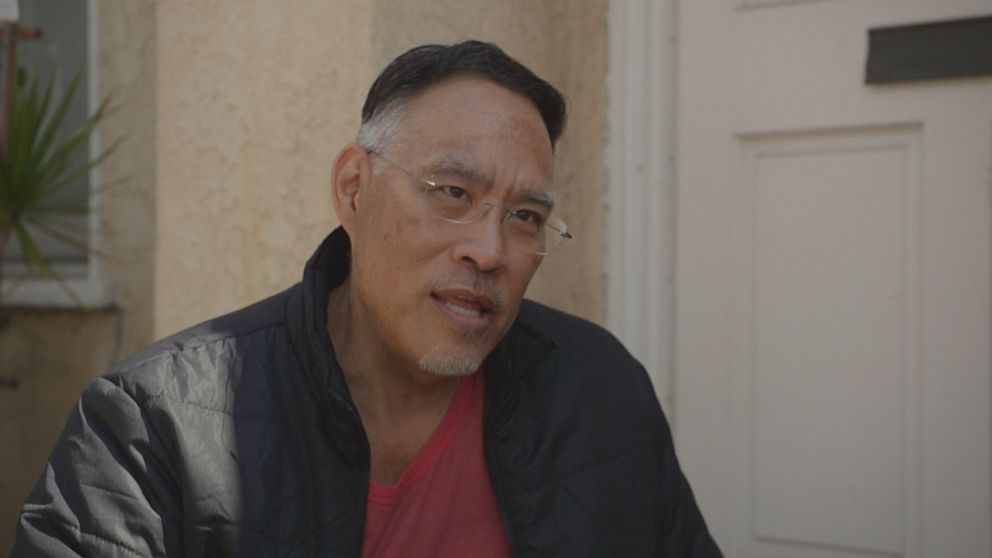
Taylor, who his father called a young and healthy flight attendant with no pre-existing conditions, came down with COVID-19 symptoms last month. He ultimately tested positive.
“He stated that he had a slight fever,” Darryl said of his son. “So he was told by the doctor to just go ahead and isolate at home.”
The next day, Taylor went to a California ER to be tested. Instead, he was admitted and his minor symptoms quickly escalated and became so severe that doctors admitted him to the intensive care unit (ICU) within one day.
“His oxygen levels kept falling,” Darryl said. “The next thing they had to do is put on the full oxygen mask on him over his nose and his mouth. He was really uncomfortable. He was having panic attacks.”
“Taylor's just a wonderful guy with a giving heart. He is always thinking of other people. He is known for having this enormous love of ice cream… He's just a real gem of a young man,” Darryl added. “I don't think anybody ever thought that something like this would happen, where there's no cure or the illness is so dire that anybody, whether they're young, middle-aged or old, could fall victim to this.”
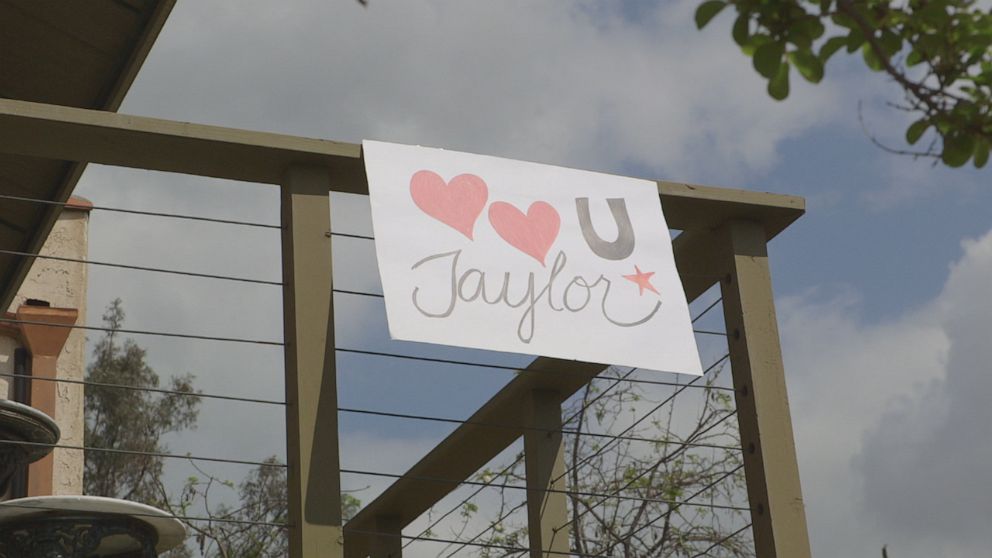
Because the virus is so contagious, Darryl, his wife KarenFay Ramos-Young and their daughters, Jessea and Nikki Young, were not allowed into the ICU. Instead, the hospital allowed the family to video conference with Taylor.
“Watching my son over a computer screen in ICU, and not being able to be there with him, is just the most horrifying experience one could have,” Darryl said. “But at least we had that.”
He said he tried encouraging Taylor to “breathe in and out slowly” and pleaded with him to try to avoid going on a ventilator. “‘It should be a last resort,’” he told Taylor.
“It was just too exhausting for him to bear, so that's when he decided that the best thing for him would be to go on the ventilator instead,” Darryl said. “And Taylor, of course, has known the impact of going on the ventilator, because his grandpa, after open-heart surgery, went on a ventilator himself. And he saw how painful it is and what sedation is like. And his grandpa never woke up again. He passed away.”
“One of the hardest things is when he's asking, ‘If I go on the ventilator, do you know how long I'm gonna be on it?’ I said, trying to be positive, like, "You know? It'll be a day or two. And we'll see you when you wake up,” Darryl recalled tearfully.
At that point, Taylor was no longer able to communicate with his family, but doctors and nurses continued to call Darryl, placing their phones by Taylor’s bedside.
“It's been a different nurse every single day. And we have to just pray that that nurse will remember to give us a call so we can talk to him,” Darryl said.
Day after day, Taylor’s family sent him words of encouragement and support and even cracked some jokes.
“Hey Taylor, it’s mom,” KarenFay said in one call. “I was thinking about you because we know you shop organic, non-GMO, only healthy food. So I was washing lettuce and it was organic and it took me five washes and three towels to get all the bugs off of my organic lettuce, it was awful. So now I know what you go through to buy expensive lettuce. But if you spend a lot of money on lettuce it should be clean, so I don’t get it guy!”
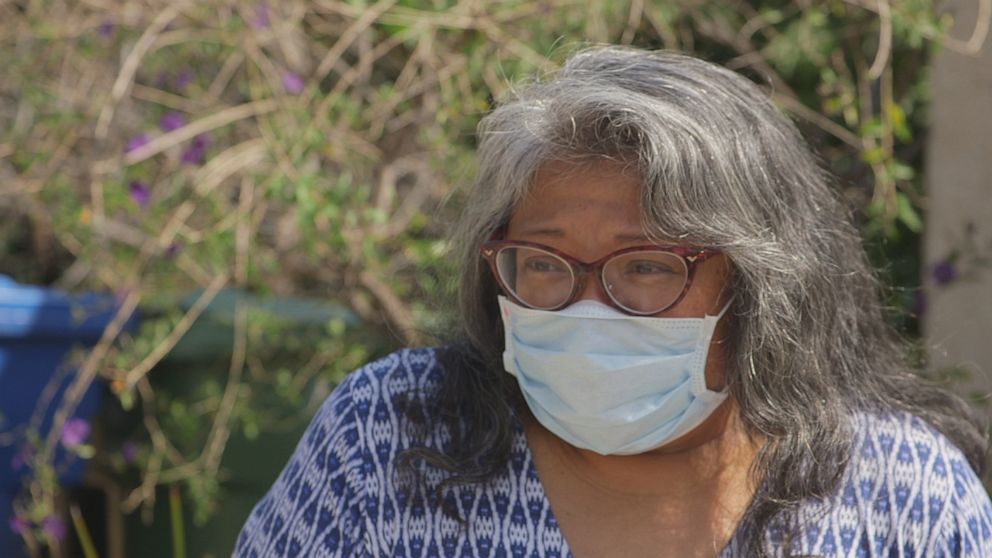
“We're praying that Taylor will pull through. And our family doctor admitted through his texts, [saying], ‘There's only so much that us doctors can do… That’s where it comes over to the spiritual part; Taylor hearing your voice as offering him that will to live,’” Darryl said.
Despite the severity of the situation, Darryl remained hopeful.
“I planted some little finger carrots… Maybe in a couple months I’ll have something large enough to eat, maybe even [to] share with Taylor when he’s out of the hospital,” he said. “It’s always a little difficult waking up in the morning because it’s … another day of the unknown. And then it’s always a little bit terrifying when you do receive that phone call … because you’re anxious, because you wanna hear how your loved one is progressing. But you don’t wanna answer it on the other hand because it could be bad news.”
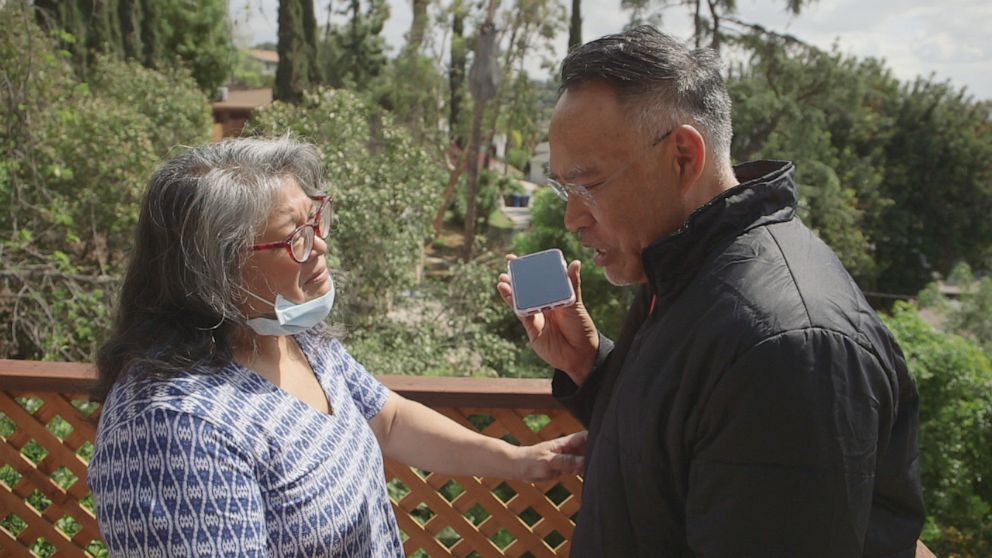
Then, on Thursday, Darryl got the call. After Taylor had been on a ventilator for 12 days, his doctor had good news: Taylor was now breathing on his own.
“She was stating that they were pulling the tube out of his throat at this very moment, because his vitals were looking very good earlier,” Darryl said. “Apparently the whole ward also cheered because [it was a] big success for him and for all of them as team members having a patient successfully removed from the ventilator.”
Before they knew it, the family received another call.
“Hey Taylor, good morning. We’re so proud of you. You’ve done such a good job pulling through. We know it’s hard to talk right now, but we just want to let you know we are embracing you with great big hugs right now. We love you so much,” Darryl told his son on the call.
Taylor managed to greet his mom despite having difficulty speaking.
“I heard his voice. I heard his voice,” KarenFay said. “Today’s a good day. Today’s a good day.”
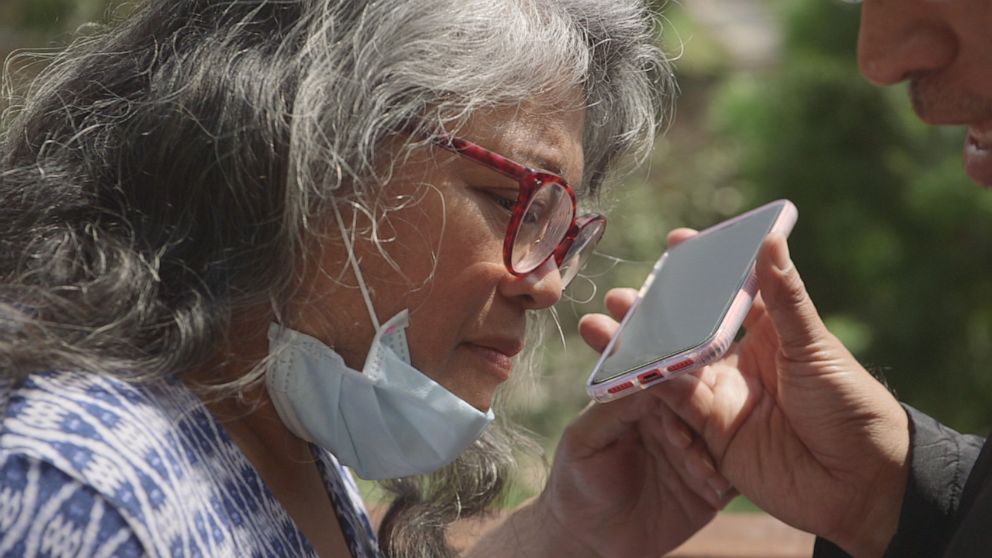
“The doctors and the nurses did say that they’d like to hold on to him for one more day just to make sure that he is doing good… [he’s] definitely not out of the woods yet,” Darryl said. “The numbers of infected individuals and those that are dying - those numbers are real. There's a face to those numbers. And so if people don't stay at home and be safe at home and wash their hands and do whatever they can to help control the spread, the next number could be them or the next number, it could be their loved one.”
Amanda and Titou know that all too well.
“I told them I was fighting to get back to them, because I wanted to be here for them,” Titou said of his family. “If it was my time to leave this world, it would be with them as opposed to by myself in a hospital.”
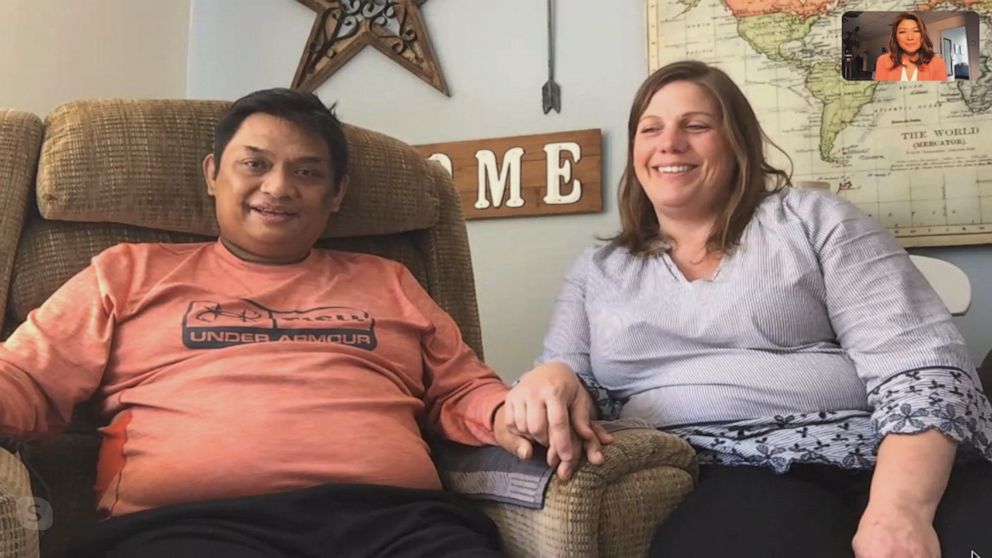
“We receive inspiration from those who survive. So it was deeply inspirational,” Osborn said of their family. “Seeing as the pure love in him and Amanda and Titou - and how happy they were. It was it was very moving and inspiring. And we need to hear that that this it is possible to recover from the most devastating version of COVID.”
ABC News' Allie Yang contributed to this story.




